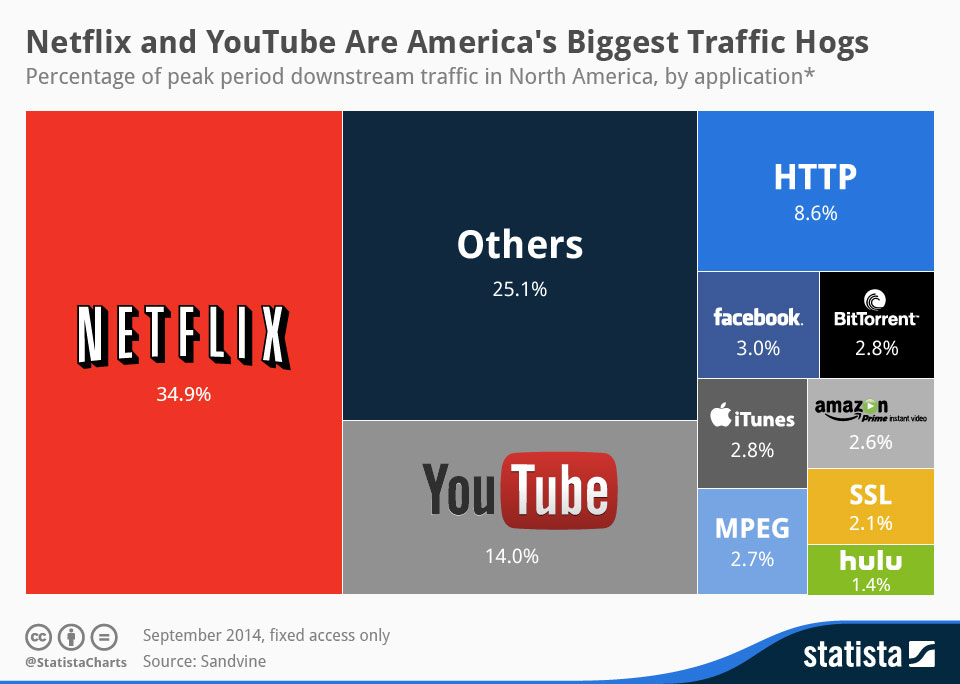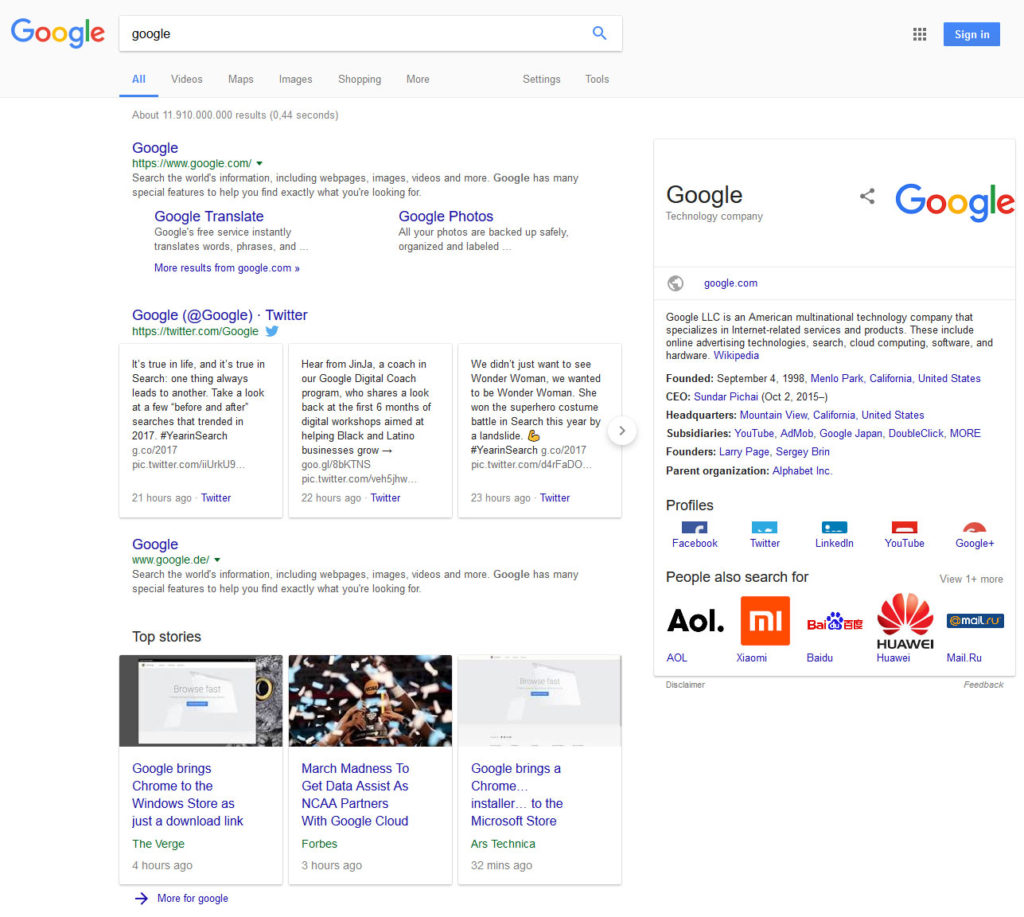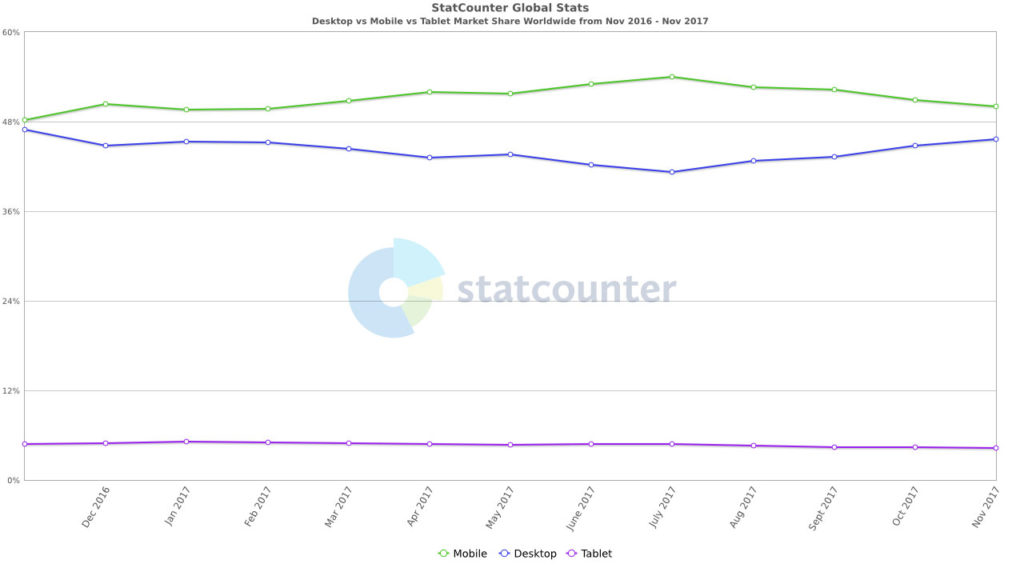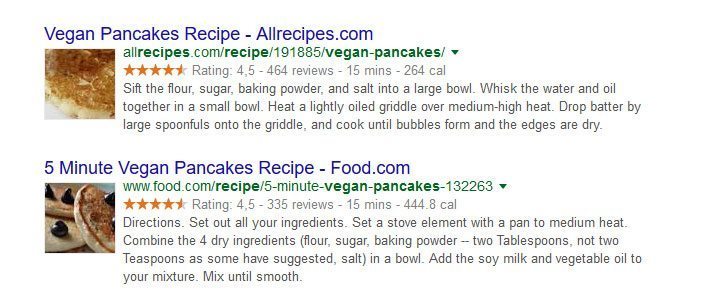What will change for WordPress SEO 2018? Search engine optimization is a field that is constantly in flux. As search engines update their algorithms, so must website owners and online marketers update their ranking strategies.
Just a few years ago mobile responsive design was just an afterthought to the web design process. By now, with Google and other search engines using mobile friendliness as an important ranking factor, it has become a main focus.
In the upcoming year, we will see more changes in the area of SEO. For that reason, in this post, we want to talk about what you can do to dominate WordPress SEO in 2018. In order to do so, we will look at some changes coming to search engine optimization in the new year and how you can get ready for them.
Let’s get going.
WordPress SEO 2018 – What You Need to Do to Rank High in the New Year
Below, you will find the biggest upcoming changes to WordPress SEO 2018 and how you can get your website ready for them.
Embrace Advanced SERP Features
In the past, Google’s search result pages were merely a listing of websites plus PPC ads. Today they have a lot more going on. From Knowledge Graph over carousels and featured snippets to answer boxes, there are many more places that your website can appear in.
Why does that matter? The new SERP features appear before the first organic search result. That’s why appearing there has been nicknamed “position 0”. Since Google has no plans of rolling back this development, it’s important that you embrace it. You can do so with the following strategies:
- Use lists, tables, graphs — These types of content are more likely to be pulled for other search real estate.
- Write Q&A content — Google often picks results that contain both the question asked in the answer box as well as its solution. Consequently, make sure to include both in your content.
- Implement rich snippets and structured data — This means adding markup that tells Google more information about different parts of your content. We will talk about this in detail further below.
Learn to Please RankBrain
RankBrain is a machine learning system that Google uses to sort its search results. It’s one of the many ways artificial intelligence transforms the Internet and by now among the top three of the most important ranking factors.
The two things RankBrain cares most about are:
- Dwell time, meaning the time users spend on your page
- Click-through rate, which is the rate of searchers who end up clicking on your result
Since it plays such an important role in SEO (and will continue to do so in 2018), it’s essential that you know how to please our new machine overlord.
How can you do so?
First of all, you can read our post on how to keep visitors on your site longer. It contains actionable strategies to increase dwell time on your site.
To increase click-through rate, concentrate on improving your SEO titles, URLs, and meta descriptions. A great starting point to learn how is this infographic.
Get Ready for Voice Search
I recently found a new way to annoy my wife: my phone’s dictation feature. Ever since I discovered it, the only time I type a message (instead of saying it out loud) is when I am in a crowded place. Super useful if you are an efficiency nerd (read: lazy) like me.
Technology has evolved to the point that it can now reliably recognize and produce human speech (at least for the English language). As a consequence, you can use it to operate your devices.
That also means people use speech to perform Internet searches. In fact, already in 2016 40 percent of adults performed at least one voice search per day. Overall 20 percent of searches on mobile devices were voice searches.
These numbers have likely increased by now and will continue to grow. Especially with emerging technology like the Internet of Things and the Siris and Alexas of this world.
Search engines recognize that trend and have started to optimize for it a while ago. That has wide-reaching implications:
- Copy needs to be good to listen to — In the future, more and more people will listen to content read out by machines instead of reading it on screen. Google voice search and Google Home do this already. For that reason, it’ll be important to make it understandable even if only listened to.
- Conversational queries will become more common — When people use voice search, they often use more descriptive queries than when they are typing (for example “how old is the pope” vs “pope age”). Websites will have to take this into account and use more natural language.
To get your site ready for this part of WordPress SEO 2018, the first step is to read your content out loud. This will give you a better feeling for how it sounds to someone who only hears it. Furthermore, get familiar with readability guidelines and, if you are using Yoast SEO, pay attention to its readability panel.
In addition to that, use a longer keyword like full sentences and questions (most voice searches are inquiries). Also, as covered further up, including both questions and their answers in your content in order to increase your chances of securing a position-0 ranking.
Prepare for Mobile-first Indexing
Google is about to make an important switch. In 2016 the big G announced it’s working on a mobile-first index. That means, instead of looking at your site through the eyes of a desktop user, Google will start looking at it as the user of a mobile device.
If you look at the development of desktop vs mobile usage in the world, it only makes sense:
The consequence of this change is that if the content is not optimized for mobile (meaning not properly accessible with a mobile device) it will be disregarded completely. If you are among the few people who haven’t invested in making your site fit for mobile, it’s about high time.
A good first step is to read our articles on what it takes to make a site mobile friendly, responsive design for WordPress and how to speed up your WordPress website. Then, make putting the advice into practice a priority for 2018.
While Google hasn’t said when exactly they will make the switch, they are already testing the new index and it might happen as early as next year. So why not prepare for it ahead of time?
Implement Accelerated Mobile Pages (AMP)
We have talked about AMP before on several occasions. It’s one of Google’s pet projects aimed to deliver search results to users even faster.
It works. I also often find myself intentionally looking for search results flagged as AMP on my mobile phone. It seems I’m not the only one as by now AMP has spread to over 900,000 domains and powers more than two billion pages. While it’s not officially a ranking factor, it does drive traffic and thus rankings. Plus, it might become part of the ranking algorithm in the future.
How can you get ready for it? First of all, read our articles on the topic mentioned above. Then, make sure you have at the least official AMP WordPress plugin or a similar solution installed on your site.
Plus, be sure to keep your ears pricked for new developments in this area. That way, you can take action if some great change happens.
Add Structured Data to Your Site
Another topic we have talked about before and one Google is making a push for is structured data.
Schema.org markup makes it easier for Google (and alternative search engines) to understand the web and elements on pages. That way, they are able to display more information in search results, including in the coveted spaces of the aforementioned SERP features. Rich snippets are also a good way to increase click-through rate (even by 30 percent), which is important for WordPress SEO 2018 for its own reason.
Does every website need structured data?
No. If you have a normal blog and use a WordPress SEO plugin to optimize it for search and social media, you are probably in the clear.
However, for sites publishing news, reviews, products and recipes, it’s advisable. To implement structured data on your site, read our post on that topic.
Continue to Make Content King of Your SEO Strategy
While the above all matters, it’s important to remember that no one single technical change is going to catapult you into the SEO stratosphere if your site just isn’t interesting. At the heart of ranking well in 2018 still lies high-quality, engaging content.
It’s the second most important ranking factor, beaten only by backlinks, which rank on number one. For that reason, the changes laid out in this article will only work as part of a bigger content strategy.
If you are still not entirely sure what valuable content means or if you want to improve your content strategy in 2018, start with these articles:
- How to Create a Content Strategy for Your WordPress Website or Blog
- 15 Tools and Plugins to Create Better Content with WordPress
- The Essential Guide to Content Formatting to Increase Time on Page
- Produce Better Content with these Content Creation Tools for WordPress
Bonus Strategy: Invest in Visual Content
If you want to be extra thorough, be sure to include visual content in your strategy. It’s one of the fastest growing types of content out there.
Estimates say that by 2021, video content will make up 80 percent of all web traffic. YouTube has become the second largest search engine in the world and videos pop up in more than half of all Google search results. Eight out of ten of them hosted on YouTube. Plus, improving visual search is the focus of all search engines.

As a consequence, this is definitely an important part of WordPress SEO 2018 and a reason to make visual content part of your marketing strategy.
If you are unable to produce high-quality video content, the least you can do is use visual content on your website. Especially infographics and other embeddable images encourage others to share or use them in their content, which is a great way to create backlinks. However, even normal images like stock photos make content more engaging and provide SEO value. Especially when optimized the right way.
Ready to Dominate WordPress SEO 2018?
As technology changes, so does the world of SEO. In 2018, we will see new developments and will have to adapt our sites to them. They range from ranking on position 0 over voice search, a mobile-first index to the spread of AMP.
Note, that none of the above is absolutely groundbreaking. Pretty much everything mentioned is a continuation of trends we have seen for a while. Therefore, if you have been staying on top of SEO developments in recent years, you should already be in a good position. However, if not, now is the time to change it.
Preparing for WordPress SEO 2018 also means covering your SEO basics. Fortunately, we have other posts on this site can help you with that:
- WordPress is The Best CMS for SEO And Here is Why
- An Introduction To Technical SEO For WordPress Websites
- How to Do an SEO Audit of Your WordPress Website
- How to Avoid Simple SEO Mistakes in WordPress
- WordPress SEO 101: How To Find The Right Keywords For Your Site
Aside from that, all that’s left is to with you good luck and success with your rankings in 2018. Hope to see you on the front page!
What do you see as trends coming to WordPress SEO in 2018? Anything to add to the above? Let us know in the comments section below!




8 Comments